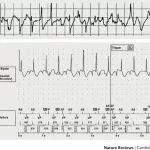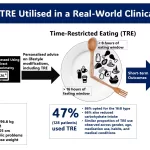In a groundbreaking discovery, a collaborative team of researchers from Hannover Medical School (MHH) and Magdeburg University Hospital (UMMD) has identified the genetic origins of congenital pulmonary airway malformations (CPAM), shedding new light on the underlying mechanisms of this rare but serious condition affecting newborns.
CPAM, characterized by malformed airways in the lungs, poses significant challenges to affected infants, often resulting in severe breathing difficulties and an elevated risk of lung cancer later in life. While CPAM is rare, it stands as one of the most prevalent congenital lung malformations, necessitating early surgical intervention for affected children.
The research team, led by Professor Dr. Christian Kratz from the Department of Pediatric Hematology and Oncology at MHH, delved into the genetic underpinnings of CPAM, focusing on variants within cancer-associated genes of the RAS-MAPK signaling pathway. This pathway plays a crucial role in prenatal lung development, and disruptions in its functioning can lead to malformations in the lung tissue.
Their study, published in the prestigious American Journal of Respiratory and Critical Care Medicine, examined tissue samples from 43 children who underwent surgery for CPAM at MHH over the past two decades. Employing both histological and genetic analyses, the researchers found that nearly 60% of the subjects harbored variants in genes associated with the RAS-MAPK pathway, confirming their hypothesis. Notably, the KRAS gene emerged as a key player, with variants in this gene correlating with a more severe disease course in affected children.
“This discovery holds significant clinical implications, offering insights that could enhance the diagnosis and treatment of CPAM,” remarked Professor Kratz. “The collaboration between various institutes and clinics was instrumental in achieving these results.”
Dr. Denny Schanze, Head of Laboratory at the Institute of Human Genetics Magdeburg, highlighted the importance of modern sequencing techniques in unraveling the genetic basis of the disease. “The utilization of advanced ultra-deep NGS sequencing methods was pivotal in our successful elucidation of the genetic factors contributing to CPAM,” Dr. Schanze affirmed.
The study’s first author, Jonas Windrich, a 10th-semester medical student, expressed his enthusiasm for the project, which formed part of his doctoral research. “This endeavor has been enlightening, and it solidified my commitment to integrating research into my future medical practice,” Windrich shared.
The research represents a significant step forward in understanding CPAM, offering hope for improved diagnostic accuracy and targeted therapeutic interventions for affected individuals. As efforts to unravel the complexities of rare diseases continue, collaborations between researchers across disciplines remain paramount in driving progress towards better health outcomes.











